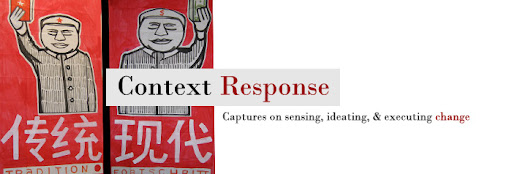Manage Your Energy, Not Your Time
Sunday, November 23, 2008
(The following is adapted from the HBR article Manage Your Energy, Not Your Time by Schwartz and McCarthy)
Working longer hours is rarely the answer for improving performance.
This gets people exhausted, disengaged and sick.
Instead focus on renewing your personal energy by adapting rituals that replenish physical, emotional and mental resilience.
1) Physical Energy
>> Get more sleep
>> Identify energy lapses, such as restlessness, yawning, difficulty concentrating
>> Take quick breaks away from your desk at 90 minute intervals
2) Emotional Energy
>> Through detailed emails, notes or conversations regularly express appreciation to others
>> When an unsettling situation occurs, consider it through a longer lens. Ask, "How will I view this situation in six months?" Then ask, "How can I grow and learn from this situation?"
3) Mental Energy
>> Perform high concentration tasks away from phones and email
>> Respond to voice mails and emails at designated times during the day
>> Each night, identify the most important challenge for the coming day, then make it priority number one when you get to work in the morning
4) Spiritual Energy
>> Spend time on activities you do best and enjoy most
>> Live your values: if consideration is important to you but you're always late, practice showing up five minutes early for everything
Working longer hours is rarely the answer for improving performance.
This gets people exhausted, disengaged and sick.
Instead focus on renewing your personal energy by adapting rituals that replenish physical, emotional and mental resilience.
1) Physical Energy
>> Get more sleep
>> Identify energy lapses, such as restlessness, yawning, difficulty concentrating
>> Take quick breaks away from your desk at 90 minute intervals
2) Emotional Energy
>> Through detailed emails, notes or conversations regularly express appreciation to others
>> When an unsettling situation occurs, consider it through a longer lens. Ask, "How will I view this situation in six months?" Then ask, "How can I grow and learn from this situation?"
3) Mental Energy
>> Perform high concentration tasks away from phones and email
>> Respond to voice mails and emails at designated times during the day
>> Each night, identify the most important challenge for the coming day, then make it priority number one when you get to work in the morning
4) Spiritual Energy
>> Spend time on activities you do best and enjoy most
>> Live your values: if consideration is important to you but you're always late, practice showing up five minutes early for everything








